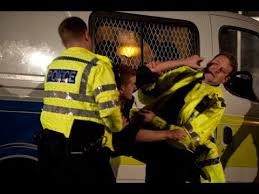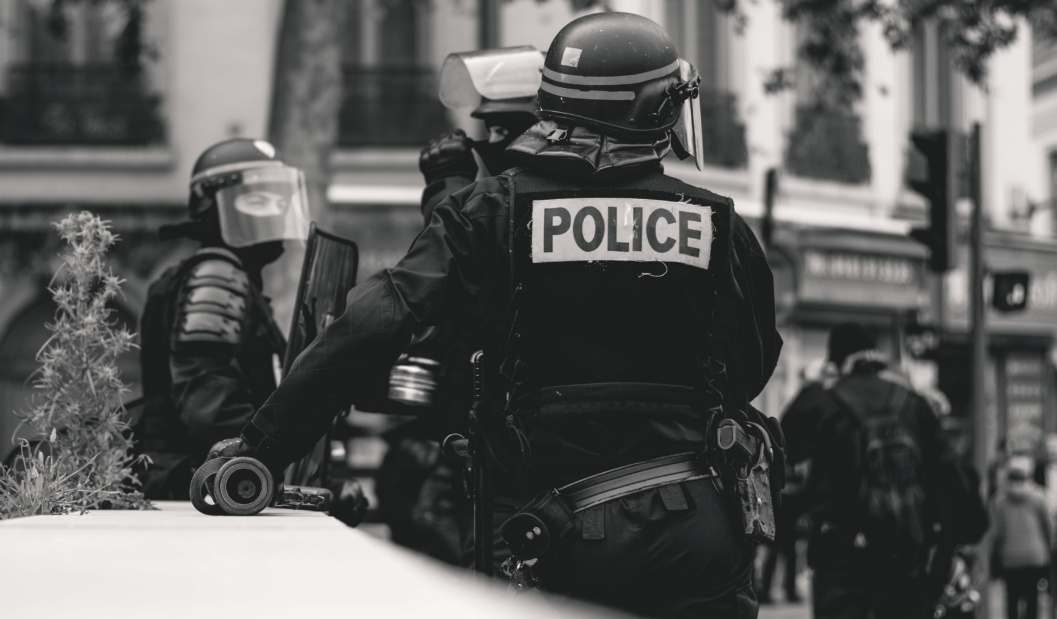This article is for general information only and should not be relied on for specific legal advice. The author will not be held responsible for any action that a person takes as a result of interpretation of the contents of this article. It is important to seek specific advice from a qualified and experienced lawyer for any legal problem.

What is Assault Police?
In Queensland it is an offence to Assault a police officer when they are performing their official duties. A person who strikes, touches, moves or applies force to a police officer (either directly or indirectly) can be charged with Assaulting a police officer.
An assault is defined in section 245 of the Criminal Code Queensland as;
“A person who strikes, touches, or moves, or otherwise applies force of any kind to, the person of another, either directly or indirectly, without the other person’s consent, or with the other person’s consent if the consent is obtained by fraud, or who by any bodily act or gesture attempts or threatens to apply force of any kind to the person of another without the other person’s consent, under such circumstances that the person making the attempt or threat has actually or apparently a present ability to effect the person’s purpose, is said to assault that other person, and the act is called an “assault” .
In this section—
“applies force” includes the case of applying heat, light, electrical force, gas, odour, or any other substance or thing whatever if applied in such a degree as to cause injury or personal discomfort.
The Law:
Section 790 of the Police Powers and Responsibilities Act (PPRA) states;
(1) A person must not assault or obstruct a police officer in the performance of the officer’s duties.
Penalty: Maximum penalty—
(a) if the assault or obstruction happens within licensed premises, or in the vicinity of licensed premises—60 penalty units or 12 months imprisonment; or
(b) otherwise—40 penalty units or 6 months imprisonment.
(2) For subsection (1) , a person who obstructs a police dog or police horse under the control of a police officer in the performance of the police officer’s duties is taken to obstruct the police officer.
Elements of the Offence:
It is the duty of the prosecutor to prove beyond a reasonable doubt that the Defendant has committed the offence. Every charge has a number of elements that the Prosecutor must prove beyond a reasonable doubt. For the charge of Assault Police the Prosecution must prove;
1.Defendant – The Prosecutor has to prove the identification of the offender;
2.Did Assault – The Prosecutor has to prove that an “assault” as defined at law has occurred. 3.
Another Person – There needs to be a victim of the crime;
3.A Police Officer;
4.In the execution of their lawful duties;
5.Without Permission – That the Defendant had no excuse for doing this (ie/ was not authorised / justified or otherwise excused at law)
Penalty for Common Assault:
The maximum penalty that a person can receive for the offence of Assaulting a Police officer is
If within a licenced premises
–
$8007.00 and / or 12 months jail
Otherwise
–
$5338.00 and / or 6 months jail
Convictions:
In Queensland, if a person is convicted of a Assault Police offence, then the court could impose one of the following penalties:
- Jail (suspended, parole or actual time);
- Intensive Corrections Order;
- Probation;
- Community Service Order;
Fines.
The actual penalty will depend on the circumstances of the matter including the seriousness of the offence and the individual circumstances and background of the Defendant.
Possible Defences
There are a number of defences available to charges at law. Not every defence is available to every charge. You will need to seek specific legal advice to see if you have a defence available to you for this charge. Some of the common defences available in criminal charges are;
- Necessity;
- Mistake of Fact;
- Public Safety;
- Self Defence or defence of another person;
- Intoxication;
- Provocation;
- Accident;
- Duress;
- Compulsion;
- Insanity;
- Automatism
Which Court will your matter be heard in?
The charge of Assault Police will be heard in the Magistrates Court in Queensland. The charge will be heard and determined by a Magistrate alone whether you plead guilty or not guilty. There is no jury in the Magistrates Court.
What should I do if the police want to speak to me about an Assault Police allegation or if I am charged with Assaulting a Police Officer?
You have the right to remain silent. You DO have to provide police with your name, date of birth and contact details. You should NOT answer any questions, make any statement or participate in any interview with the police. You should be polite to the officer but insist that you want to talk to your lawyer. You have the right to telephone a friend, relative or lawyer.
Call an Expert
If you are charged with a criminal offence, it is very important that you seek immediate legal advice. Our team at Brooke Winter Solicitors can give you over the phone advice. We have a solid reputation as expert Criminal Lawyers and can represent you in court. Call us on 1300 066 669 if you have any questions. We can assist you no matter where you are located and can appear in every court.





